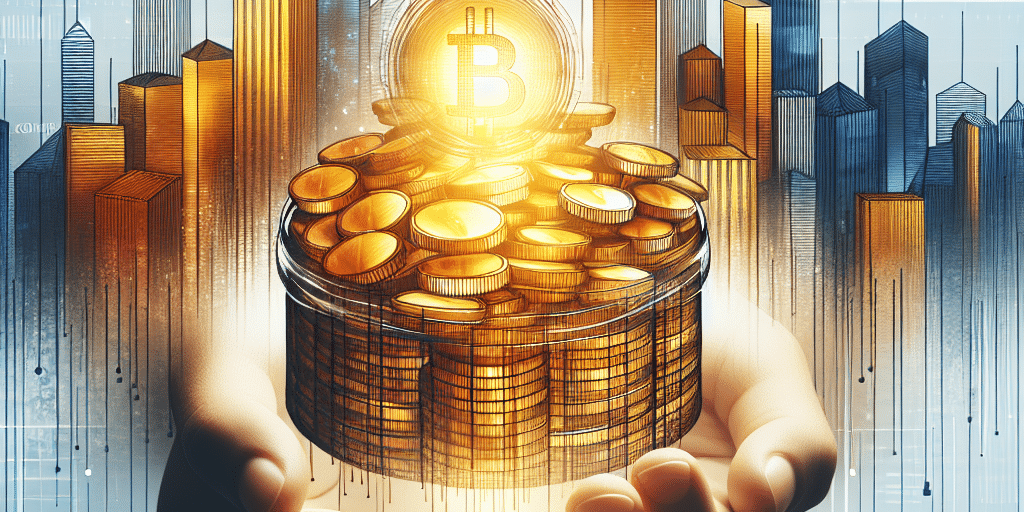Title: Understanding Governance Tokens in Decentralized Finance (DeFi)
In the fast-growing world of decentralized finance (DeFi), governance tokens have emerged as a pivotal element driving the evolution of decentralized networks. These tokens serve as the backbone of decision-making processes, enabling token holders to influence the development and management of blockchain projects. As the DeFi space continues to expand, understanding governance tokens becomes essential for anyone looking to grasp the future of decentralized systems.
What are Governance Tokens?
Governance tokens are cryptocurrencies that embody the right to participate in the governance of a blockchain project. Unlike traditional voting systems, where decisions are made by a central authority or board, governance tokens democratize the process, allowing token holders to propose and vote on changes to the protocol. This could include adjustments to fee structures, alterations to the project’s underlying code, or the allocation of treasury funds.
The concept of governance tokens is closely tied to the ethos of decentralization. By distributing control to a wide base of users, blockchain projects aim to create a more equitable and transparent decision-making process.
How Do Governance Tokens Work?
In practice, governance tokens work by enabling holders to participate in the governance of a decentralized network. Here’s a general overview of how this process functions:
Proposal Creation: Community members or developers propose changes to the protocol. These can range from minor adjustments to major overhauls.
Proposal Voting: Holders of governance tokens vote on the proposals. The weight of each vote is typically proportional to the number of governance tokens held by a participant.
Implementation: If a proposal garners enough votes, it is implemented into the protocol, sometimes automatically, depending on the network’s infrastructure.
- Continuous Improvement: The decentralized governance model allows for ongoing iterations and enhancements to the project, driven by community consensus.
Prominent Examples in DeFi
Several DeFi projects have adopted governance tokens as a central element of their ecosystems. Among the most notable are:
MakerDAO (MKR): One of the pioneers in DeFi, MakerDAO uses MKR tokens for governance. Token holders vote on issues such as risk management and the type of collateral that can be used for its DAI stablecoin.
Compound (COMP): Compound allows holders of COMP tokens to propose and vote on changes to the protocol, such as modifying interest rate models and treasury management.
- Uniswap (UNI): As one of the most popular decentralized exchanges, Uniswap uses UNI tokens to empower its community in deciding the platform’s future developments.
The Importance of Governance Tokens
Governance tokens play a crucial role in ensuring that decentralized networks operate smoothly and sustainably. By involving stakeholders in decision-making, these tokens promote transparency and align the interests of developers, investors, and users. This decentralized approach can potentially mitigate the risk of central points of failure and ensure that projects remain adaptable to changing market conditions.
Furthermore, governance tokens represent a new model of community engagement, where participants have a direct influence on the trajectory of the project. This can enhance user loyalty and create a more invested community.
Challenges and Criticisms
Despite their potential, governance tokens are not without challenges. One concern is the concentration of voting power. Often, a significant portion of tokens is held by a small number of entities, which can lead to disproportionate influence over decisions—counteracting the ethos of decentralization.
Furthermore, the complexity of governance mechanisms can deter participation. Ensuring that the community is informed and engaged requires ongoing education and outreach, which can be resource-intensive.
Conclusion
Governance tokens signify a transformative stride toward decentralized governance in the blockchain ecosystem. They empower communities by redistributing authority and facilitating active participation in project development. As DeFi evolves, the role of governance tokens will likely become more sophisticated, balancing power, and potential to shape the future of decentralized finance. Understanding their function and impact is crucial for anyone engaging with or investing in the world of blockchain and decentralized systems.







